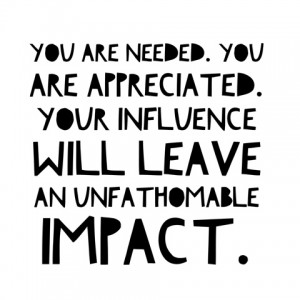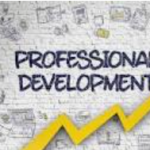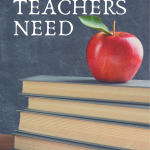I am so excited to see 6th grade teachers and students rejoin our middle school campuses. We use to have 6th grade on my campus a few years ago, but the decision was made to remove them and placed them on the elementary campuses. As several brand new 6th grade teachers and veteran teachers enter my campus and school district, I am reminded that thousands more, all over this country, are still in their first years of their teaching career. When I see all the new and familiar faces on my campus, it makes me reflect on how long I have been teaching, and how long I’ve been with my current school district. As a veteran teacher, I am approaching my 20th year as an educator, and like so many other veteran teachers, our experiences have translated into a successful “formula” that we often share with newer educators and parents. To be clear, I don’t believe in any rudimentary, one size fits all, mentality to education. However, I do believe our teaching experiences and the relationships we build with our scholars every year provide us with a roadmap to success. As teachers, the best thing we can do is discover tools that work for us; true success does not come from any magic teaching pill, but instead, it’s finding our own voice and establishing our own best practices. The best formula for success, as an educator, is to be a strong advocate for our scholars; we must put their needs first. When we lose sight of this, we lose ourselves, we fail our students and we forget why we got into teaching in the first place.
The following is what I like to call my David Letterman Must Do’s or Must Have’s–Top Ten List for Back to School. It’s based on my many years of teaching and building partnerships with peers, students, and parents:
10. Supporting First Year Teachers:
The most significant role the veteran teacher can play in a school is to support our new teachers. This support can manifest itself in the direct form of mentoring or by a teacher simply sharing a lesson plan or instructional strategy. The veteran teacher can truly make a powerful impact on a novice teacher’s transition into education. Veteran teachers, please remember that there is wisdom in your many years of “been there, done that.” We can all reminisce about that once-upon-a-time moment when we were that nervous new teacher heading to the classroom filled with little eager hearts and minds.
- Always Preparing for “Stormy” Conditions in the Classroom:
At the beginning of each school year, like clockwork, my friend heads to her classroom with a broken air conditioner unit. Yikes!! In the middle of an Arizona summer, this is definitely a recipe for disaster. She always keeps 2 or 3 fans tucked away until the unit gets fixed. To combat the heat generated by sunlight baking in my classroom during those first and last weeks of school, I also keep a small personal fan ready to go. In my classroom, I keep a few articles of clothing tucked away in a tiny personal closet. These well-chosen sweaters or scarves can improve the level of comfort in my sometimes drafty to a bitterly cold classroom. I often hear my scholars say, “Miss Jay it’s too cold in here.” In my school district, teachers can only make very minor adjustments to the AC units. I also keep a pair of “flats” or slip-ons in my classroom for when my feet have had enough.
- Setting up Procedures & Building a Solid Foundation Before Delivering Content:
As a veteran teacher, I know how critical it is to be clear about the procedures before delivering content; the classroom citizenship plan is posted and reproduced for student use. As veteran teachers, we know what procedures are most useful when instructional strategies (class discussions, exit slips, turn and talks, etc.) are used in delivering content…..AND we Practice, Practice, Practice: We practice classroom procedures daily from the first day of school because we understand that education must be a process before it can result in a product. Most importantly, I am building nurturing relationships for the first 3 weeks of school. This is the student-teacher rapport (foundation/building blocks) that extends throughout the school year.
- Oh! Oh! Oh! Avoiding the Dreaded Copier Room the First Week of School:
As veteran teachers, you will normally not see us in the copier room the first week of school because all the reproducibles (ice breakers etc.) necessary for the first week are already printed the last week of school ![]() or during summer break.
or during summer break.
- Locating and Organizing Classroom Resources:
As a veteran teacher, I know where to look for resources in the school building, but even more importantly, I know how to organize and store resources to last throughout the school year (one of the many tips I would share with my new teachers). In cases where resources are particularly tight, I know how to make these resources last by rationing. ![]() The veteran teacher always has a hidden stash of often used supplies, especially paper, and if we’re lucky, sometimes even in multiple colors.
The veteran teacher always has a hidden stash of often used supplies, especially paper, and if we’re lucky, sometimes even in multiple colors.
- Partnering with and Befriending the Custodian:
I have a genuine friendship with my head custodian, Ana. She is a wonderful lady and I often advocate for her when speaking to other teachers (what we can do to make her life a little easier). Most of the schools in my district are under staffed when it comes to the custodian team, so it’s imperative that we all work together. Veteran teachers know the most important staff members in the building can be found in the office of the custodian. Those first days of school, when the classroom is one desk short, when little critters have formed an army in the room, or when the whiteboards have suffered their final defeat, our custodial office becomes the heroes. As veteran teachers, we know how to ask politely when we need to be rescued, and how to reward our heroes generously throughout the school year!
- Forming Partnerships with Parents and Guardians & Gathering Parent Contact Information:
As a veteran teacher, I know how essential it is to collect parent/guardian contact information during the first week of school. We know that our built-in, digital record keeping system, is sometimes incomplete or out-dated. Real time information on parent/guardian contact (“Who would you like me to call if I have to call home?”) with current phone or e-mail is an important resource that the veteran teacher maintains and updates regularly. This is the beginning of my partnership with parents for the overall academic success of my scholars.
- Creating a Seating Chart that is Flexible:
The alphabetized seating chart is a standard for many of my new teachers, but as veteran teachers, we know this seating plan is only temporary. The real seating plan is a road map that reveals the “hot spots” in my room: the “keep an eye on corner,” the “needs attention row,” the “area of reflection for the distracted”. My seating plan (teaching philosophy) is based on Dr. Marvin Marshall’s Discipline without Rewards, Stress, or Punishment. Students decide where they want to sit based on their own decision-making skills (making wise choices). When confronted with a request for preferential seating, as veteran teachers, we know this may not be the first row seat as this request is often interpreted to mean. Preferential seating could be the third row when visual or audio is range is important. I might even use the rear of the room for preferential seating as a place to offer discreet support.
- Committing to Learning Students’ Names on Day One:
As a veteran teacher, I know the power of a student’s name (especially their preferred name). In order to become skilled at committing student names to memory, throughout the years, I have learned to have my scholars create name cards to place on their desks; classroom management begins with names. I also know that learning a particular scholar’s name the first few minutes of the first class could be an indicator of behavior problems to come ![]()
- Not Recoiling at the word “CHANGE”:
This has to be number one on the list because as teachers we often experienced countless changes during that first week back and in education in general (some good, some detrimental). As Jess Ledbetter so eloquently stated in her post, Dear Experienced Teacher in a New Situation, “Being an experienced teacher in a new situation was a little bit like being a second year teacher all over again. I knew what I needed to do, but finding time to do it ALL was really challenging.” As veteran teachers, we know change is inevitable and we have learned how to adapt to each wave of educational change. Decades of educational reform and practices have definitely prepared me for the often turbulent winds of change in education. We are currently going through a very sensitive change within my school district, which greatly impacts my campus; tensions are running high. As a teacher leader, I’m doing what I can to support my peers through this challenging time. From textbook adoptions, to No Child Left Behind; from digital classrooms, to the Common Core State Standards; the veteran teacher is a core member of the staff who knows that change is a relentless influence in education. As veteran teachers, we understand that how we react to “change” can either have a positive or negative impact on those around us and as Ledbetter pointed out, “…if you are an experienced teacher in a new situation, hang in there. You too will find future victories! Be good to yourself, reach out for help from colleagues, and remember to pay it forward when you meet another experienced teacher in a new situation down the road.”
Veteran teachers, please remember your self-worth and how much you are valued in education. We don’t say it enough, but you are appreciated. Continue to share your tips and successes with others. What do you do during those first few crucial weeks of school that has proven to be a gem that you can share with others?
What do you do during those first few crucial weeks of school that has proven to be a gem that you can share with others?














Comments 5
Treva – Thank you for your post. I loved the top ten. I do hope one of these days we will cross paths. The number one on your list is so very true. The ability to adapt and overcome. To change and flex with our students is so very important. I wish my daughters could have you as a teacher..
You’re too kind Mike. I try to be the very best for my young scholars
Thank you for this Treva. It makes me think that a lot of solutions to a lot of problems start by reminding ourselves to go back to the basics.
I love how you identified the strengths of veteran teachers and thoughtfully proposed ways for them to leverage their wisdom around the school. These positive, wise tips help build a healthy school culture. One tip to share about organizing materials- I have found that labeling the containers, and keeping the labels facing outwards, is truly helpful when madly hunting for brads or masking tape or random magnets. Lol
Very true:) color coding everything also works great for my little ones.